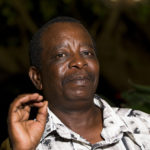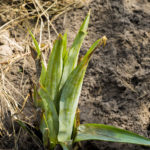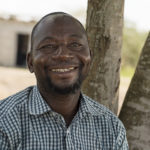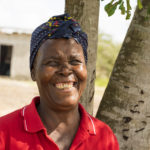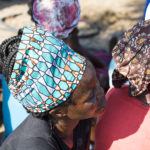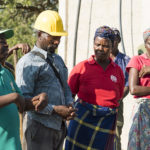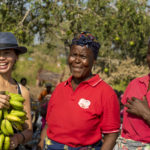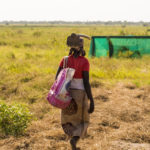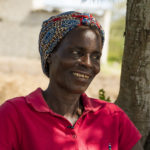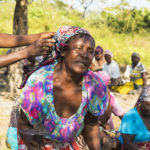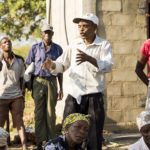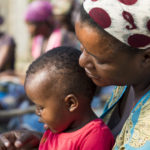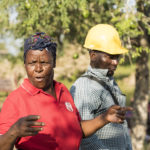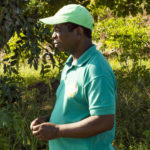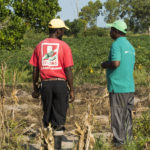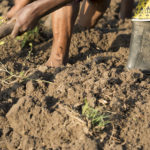Outstanding Practices in Agroecology 2019 Announced
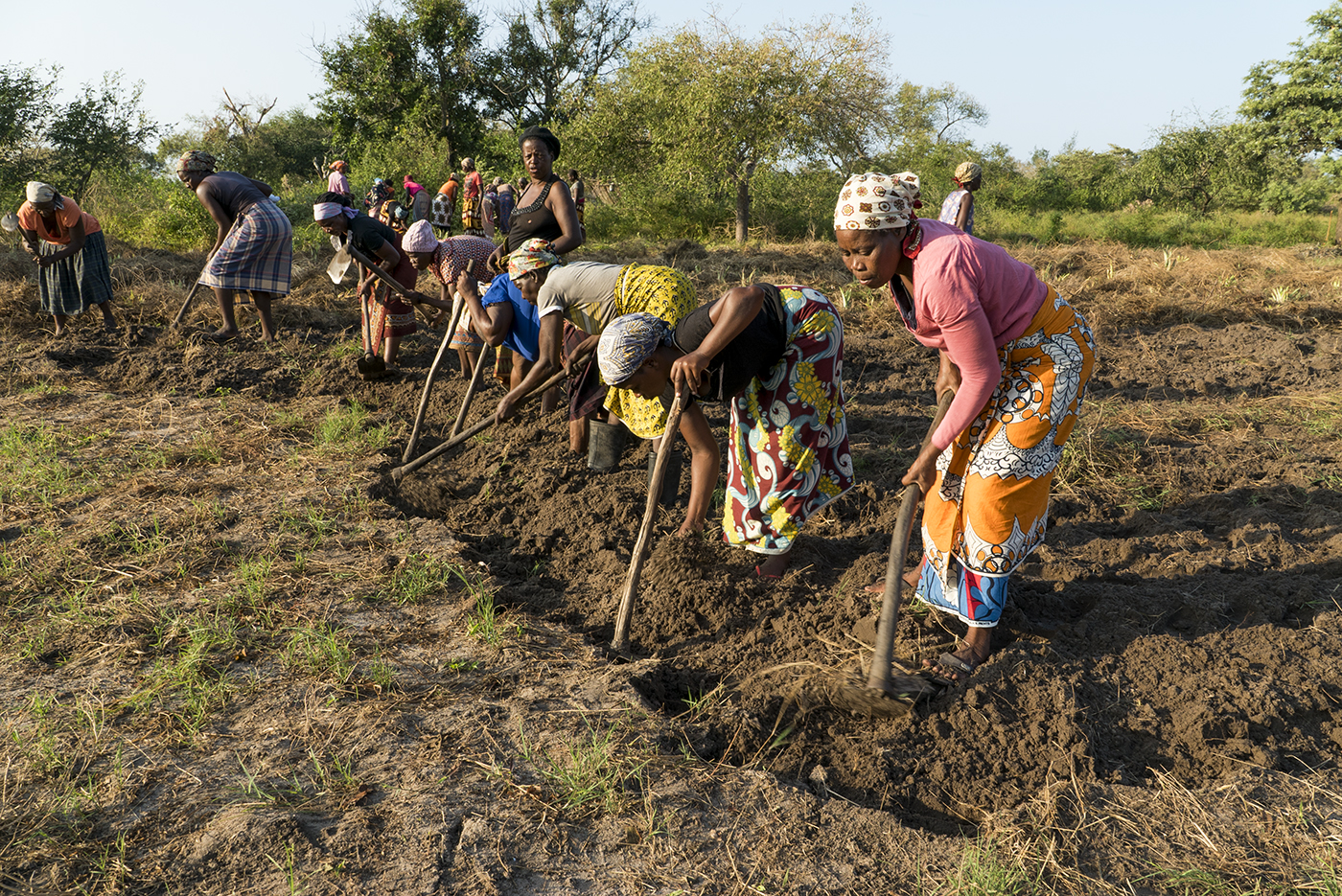
The recognition highlights outstanding practices advancing the transition towards agroecology from the global South. Out of 77 nominations from 44 countries, 15 receive recognitions, including practices from across Africa, Asia and Latin America.
Berlin, 17 January 2019 – 15 outstanding projects, programmes, social enterprises and non-governmental organisations from the Global South promoting sustainable food systems are receiving the first recognition Outstanding Practices in Agroecology 2019, beating 77 nominations from 44 countries. The recognition is organised by the World Future Council (WFC), in collaboration with the start-up Technology for Agroecology in the Global South (TAGS).
On the basis of a World Future Council evaluation report, an international panel of renowned experts decided upon the following 15 best practices to be recognised in Berlin on Friday 18 January, 2019 at the occasion of the International Green Week and the Global Forum for Food and Agriculture 2019:
Africa: Regeneration Through Connecting Seeds with Culture and Nature in Africa (2007)
This NGO project works in 11 African countries to revive traditional agroecological farming systems, promoting seed and food sovereignty and regenerating livelihoods. Currently it has 4,640 farmers working on reviving seeds and has revived 470 varieties of seeds.
Benin: Premium Hortus (2016)
Premium Hortus specialises in the e-commerce of agroecological products, organic production and producer support. So far, the African Greentech company has trained 400 small farmers and provided access for more than 700 urban households to healthy food. Waste is also limited and recycled.
Benin: Using water hyacinth compost to produce healthy food and protect the environment (2013)
This NGO project turns the highly invasive plant species water hyacinth into an economic opportunity, by training smallholders in compost-making and providing them with market access. A 20% reduction of water hyacinth was achieved. Furthermore, smallholders are connected to market opportunities to enhance their income.
Brazil: Community organic waste management and urban agriculture – “Revolution of the buckets” (2008)
This community project collects domestic organic waste for use in urban agriculture in socially-troubled areas of Florianópolis, Brazil. This waste management system has already treated 1,200 tons of organic waste and contributed to the production of nutritious food of participating families, benefitting over 1,600 people.
Cameroon: Participatory Domestication of Indigenous Trees for the Delivery of Multifunctional Agriculture by Agroforestry (1994)
The research project enables farmers to implement agro-forestry techniques and to diversify livelihoods, learned at inclusive Rural Resource Centres (RRC). In Cameroon, it opened with communities 10 RRCs, hosting 150 nurseries and serving over 10,000 households, planting 1.6 million trees.
China: Shared Harvest and Rural Regeneration (2009)
This social enterprise promotes a community-owned socio-economic mode of agriculture. The Shared Harvest farm weekly delivers fresh organic and locally produced food to 800 consumer members in Beijing, guaranteeing each 200 kilograms of food. It is the foundation of China’s Community Supported Agriculture movement.
Cuba: Generation and adoption of Agroecological Pest Management (APM) system in the Cuban Agriculture (1993)
The research programme increases the capacity for self-regulation of pests. From 2003-2008, 30,780 farmers were trained and diffused APM to others. This has led to reduced costs of pesticides and pests in 75% of Cuban agrarian production, and an increase of biodiversity and climate resilience.
Egypt: SEKEM Initiative (1977)
Today SEKEM is a leading social business worldwide. It reclaimed about 684 hectares of desert land, of which 100% is operated by biodynamic agriculture methods. More than 70% of SEKEM’s reclaimed land produces food and raw materials for the local market. Its products respect highest possible ethical, ecological and social standards.
Global: Farmer Managed Natural Regeneration (FMNR, 1983)
First developed in Niger, FMNR – a low-cost, quick, farmer-managed technique that restores woody vegetation on deforested and degraded land – is now implemented in at least 24 countries. In Niger, FMNR spread to 5,000,000 hectares, reviving more than 200 million trees. Its founder Tony Rinaudo recently gained the Right Livelihood Award 2018.
India: Promoting organic farming and marketing among small peasants in an ecologically fragile region (Timbaktu Collective, 2005)
This grassroots organisation improves the livelihoods of marginalised smallholders through organic farming and producer-owned enterprises. Now 8,700 acres are under agro-ecological farming practices and many of the 2,080 farmer families they work with, are shareholders of the established cooperative.
Kenya: Drylands Natural Resource Center (DNRC, 2007)
The Drylands Natural Resource Center (DNRC) works with over 600 smallholder farmers, in order to restore their land through agricultural and agroforestry best practices. Thanks to DNRC over 100,000 tree seedlings of over 30 different local species are planted each year, with a survival rate of 80%.
Mozambique: Inclusive investment for agroecology (2012)
Based on individual and collective investment, risk sharing and consultation and negotiation, this practice facilitates a transition to boost agroecology, strengthens local institutions for self-determination, facilitates higher level of aggregation and diversifies production and markets. By 2018, 180 smallholders have been trained in agroecology.
Nepal: Cultivating Green Prosperity in High Himalayan Communities through Medicinal and Aromatic Plants (MAPs, 2000).
This NGO project trains highland farmers in growing medicinal and aromatic plants, offering them a profitable alternative to traditional wild harvesting. Now, 18,000 farmers are trained in over 100 Nepali villages and over 2,500 hectares of degrade land are covered with 13 different MAP species.
Philippines: Building Resilient Farming Communities and Sustainable Economies in the poorest provinces of the Philippines through Agroecology (2004)
The practice improves rural development by focusing on organic production, social entrepreneurship and marketing hubs. It has trained 3,048 smallholders on climate-resilient agriculture and initiated 22 farmer’s organizations now engaging in social entrepreneurship.
Zimbabwe: Africa Centre for Holistic Management (2005)
Working directly with local farmers in Zimbabwe, the ACHM disseminates holistic management planned grazing. This has multiple proven benefits for soil regeneration and for farmers’ revenues. The Centre has trained 100 facilitators so far and reached 15,000 communal farmers in 16 Zimbabwean communities.
On the occasion of the International Green Week and the Global Forum for Food and Agriculture 2019, recognised practices will be presented at the event: “Scaling up Agroecology! For Forward-looking Decision-making in Policy and Practice”, on 18th January 2019, 15:30 – 17:30h at the Heinrich Böll Foundation, Schumannstr. 8, 10117 Berlin, along with a panel discussion including representatives of the Food and Agriculture Organization of the United Nations (FAO) and the German Federal Ministry for Economic Cooperation and Development (BMZ).
Statements from the World Future Council, TAGS and IFAD
“To address hunger, social inequality, climate change, and biodiversity loss, a transition to sustainable food and agriculture systems is inevitable. This recognition showcases smart solutions that really work for the local people and empower those on whom food security of the Global South relies on: small-scale food producers. The Outstanding Practices in Agroecology 2019 create immediate and real impact and if executed at scale, they can help to considerably transform our food systems,” says Prof. Dr. Franz-Theo Gottwald, Supervisory Board Chairman of the World Future Council.
“Innovation happens when people who are facing challenges dare to think outside the box. The practices distinguished as Outstanding Practice in Agroecology 2019 show in an impressive way how holistic and innovative approaches can turn agriculture into a key element to fight not only food scarcity but also poverty, climate change and loss of biodiversity. It’s time to give a stage to these exemplary approaches and think about ways to scale their impact,” say Valerie von Koerber and Samuel Wagner, directors of the start-up Technology for Agroecology in the Global South (TAGS).
“These 15 Outstanding Practices in Agroecology 2019 are exemplary in that they empower small-scale food producers, nurture sustainable food systems and promote resilient agricultural practices. I proudly served on the jury of this recognition and call all decision-makers to learn from these unique initiatives”, says Shantanu Mathur, Lead Adviser, Global Engagement and Multilateral Relations Division, International Fund for Agricultural Development (IFAD).
More information about the practices can be found online:
https://www.worldfuturecouncil.org/p/opa-2019/
Media Contact:
Miriam Petersen
Media & Communications Manager, World Future Council
miriam.petersen@worldfuturecouncil.org
+49 40 307 09 14 19
About the World Future Council
The World Future Council (WFC) works to pass on a healthy planet and fair societies to our children and grandchildren. To achieve this, we focus on identifying and spreading effective, future-just policy solutions and promote their implementation worldwide. Jakob von Uexkull, the Founder of the Alternative Nobel Prize, launched the World Future Council in 2007. We are an independent, non-profit organisation under German law and finance our activities from donations. For information visit www.worldfuturecouncil.org
About TAGS
TAGS is an initiative aiming at using the Bosch company’s technological strength to contribute to major global challenges. It turned out very soon that our focus will be on the empowerment of smallholder farmers. We were given the chance to explore the possibilities as a start-up within the Bosch organization. The Start-up is called TAGS – Technology for Agroecology in the Global South.
Learning from the Outstanding Practices in Agroecology TAGS aims at finding a way how Bosch’s expertise in technology and/or large scale production can help to scale those practices in order to empower as many farmers as possible.

